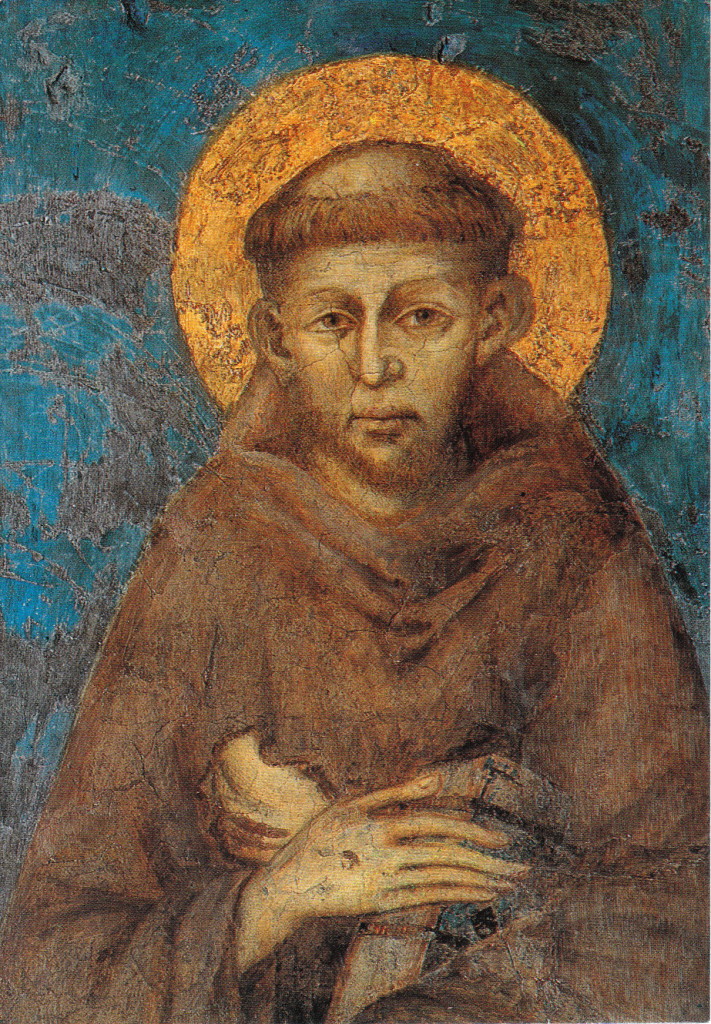Posts Tagged ‘Belief’
Evolutionary Impetus
“Consciousness is the basis of all life
and the field of all possibilities.
Its nature is to expand and unfold its full potential.
The impulse to evolve is thus inherent in the very nature of life.”
~ Maharishi Mahesh Yogi
“I died as a mineral and became a plant,
I died as a plant and rose to animal,
I died as animal and I was man.
Why should I fear?
When was I less by dying?
Yet once more I shall die as man,
To soar with angels blest;
But even from angelhood I must pass on …”
~ Rumi
“Man’s highest aspiration – his seeking for perfection, his longing for freedom and mastery, his search after pure truth and unmixed delight – is in flagrant contradiction with his present existence and normal experience. Such contradiction is part of Nature’s general method; it is a sign that she is working towards a greater harmony. The reconciliation is achieved by an evolutionary progress. Life evolves out of Matter, Mind out of Life, because they are already involved there: Matter is a form of veiled Life, Life a form of veiled Mind, May not Mind be a form and veil of a higher power, the Spirit, which would be supramental in its nature? Man’s highest aspiration would then only indicate the gradual unveiling of the Spirit within, the preparation of a higher life upon earth.”
~ Sri Aurobindo
“Our separation of each other is an optical illusion of consciousness.”
~ Albert Einstein
“Cosmic consciousness is infinite evolutionary impetus in each of us.”
~ Ron Rattner, Sutra Sayings
“Every adversity is an evolutionary opportunity
for everyone, everything, everywhere.”
~ Ron Rattner, Sutra Sayings
Q. Is human spiritual evolution possible? If so, is it optional or inevitable?
A. Humankind are self conscious integral aspects of a conscious, orderly and harmonious universe.
As part of such conscious cosmic order, there is an evolutionary impetus in each of us for ever expanding universal consciousness to experience itself.
We are all “pre-programmed” to transcend ego’s “optical illusion” of seeming separation as body forms from all other forms (and so from the universe), by evolving from this separation illusion to experiential realization of cosmic Oneness of all forms and phenomena as undivided Awareness.
Our universe is an ever oscillating and vibrating energy “reality”.
So, our evolutionary pre-programming involves subtle vibratory vortices – or chakras – each potentially resonant with ever ascending vibratory levels of Awareness. As evolutionary energy – sometimes called kundalini – is awakened and activated in each being it gradually purifies and eventually opens these subtle energy centers, until ultimate transcendence is attained.
Everything that happens to us until we transcend ego’s “optical illusion” is in our best interest, because it affords an opportunity to evolve.
Although our evolutionary “pre-programming” assures that such transcendence is ultimately inevitable, our progress rate is optional, depending on what we think, do and say – individually and collectively – while misidentifying ourselves as separate.
For example, compassionate words, thoughts and deeds hasten spiritual evolution, while selfishness deters it.
But, cosmic consciousness will eventually provide life experiences leading to transcendence.
Paradoxically, life’s most painful and difficult experiences often prove the best evolutionary opportunities, and biggest blessings,
because they most challenge and motivate surrender of ego misidentification and provide greatest transcendence incentives.
So, human spiritual evolution is inevitable, but rate of evolutionary progress is optional.
Ron’s explanation and comments about “Evolutionary Impetus”
Dear Friends,
Throughout world history, philosophers and theologians have perennially asked:
‘How could an all loving, omnipotent, omniscient, and omnipresent Divinity have created this world with so much suffering, evil, violence, and misery?’
For example, influential German Christian philosopher Gottfried Leibniz optimistically postulated that God created Earth, though imperfect, as “the best of all possible worlds”. In his Theodicée, published in 1710, Leibniz described a harmonious universe in which all events are linked by cause and effect, and in which apparent evil is compensated by some greater good that may not be evident to the limited human mind.
French philosopher Voltaire sharply satirized and questioned that optimistic philosophy in his popular novella, “Candide”. Without addressing subtleties of Leibniz’ philosophy, or possible causes of evil, karma or ‘original sin’, Voltaire’s protagonist “Candide” discovers, after many emotional ups and downs, that everything does not seem to happen for the best; and he concludes that each person must learn from past mistakes, and proceed stoically with kindness and virtue, no matter the pain and difficulties confronted.
After many years of experience and reflection, I have adopted a philosophy more harmonious with Leibniz than Voltaire: that everything in space/time does happen for the best – to afford impetus for spiritual evolution; that human suffering, evil, and misery are not “created” by God but by mysterious karmic causes and conditions arising from unskillful Human behaviors; that what many call “God” is indescribable, impersonal and nonjudgmental Universal Awareness which is the mysterious Source and ever immanent Essence of space/time “reality”. I have also adopted the non-dualist philosophy that our ever impermanent energy “reality” is like a mental mirage, arising only from projected Human thought; that true Reality is universal Infinite Potentiality beyond the Human mind.
In many Silly Sutras postings I have shared these philosophies, to encourage others to decide for themselves about such perennial questions. So, my theories are not offered as expressing ultimate spiritual truths, but to inspire our intuitive and experiential introspection on ideas (often paradoxical), about who and what we are and our life’s purpose and plan, if any.
Retrospectively, I have become convinced that my life has unfolded and evolved perfectly, as if a Divine novelist was writing Ron’s life-plan script. Accordingly, my attitude toward life’s inevitable ups and downs became that everything happens ‘for the best’ – to promote our evolution; that in every adversity there is an evolutionary opportunity. (See e.g. I’ve Found A Faith-Based Life. ) So, paradoxically life’s most painful and difficult experiences often prove the best evolutionary opportunities, and biggest blessings, because they most challenge and motivate surrender of ego misidentification and provide greatest transcendence incentives.
The above posting, “Evolutionary Impetus”, considers whether human spiritual evolution is possible, and if so, whether it is inevitable or optional. And it elaborates my philosophy that whatever happens to us until we transcend ego’s “optical illusion” of separateness is in our best interest, because it affords incentive to evolve. It suggests that human spiritual evolution is inevitable, but that rate of progress is optional depending on our behaviors while misidentifying ourselves as separate entities.
May these philosophical theories inspire our continuing intuitive and experiential introspection about who and what we are, and our life’s purpose and plan, if any.
And may they help us find ever more joy and fulfillment in our unique life experiences.
And so may it be!
Ron Rattner
Our Mentality Is Our Reality:
~ Sutra Sayings
“The greatest discovery of any generation
is that human beings can alter their lives
by altering the attitudes of their minds.”
~ Albert Schweitzer
“We do not see things as they are;
we see things as we are.”
~ Talmud
“Our mentality is our reality.
Our “reality” is what we think it to be.”
~ Ron Rattner, Sutra Sayings
“Reality exists in the human mind, and nowhere else.”
~ George Orwell, 1984
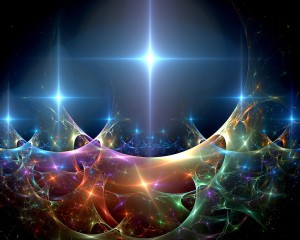
Introduction.
The following verses were inspired by Dr. Albert Schweitzer’s crucial assertion that:
“human beings can alter their lives by altering the attitudes of their minds”
.
They are shared to remind us that our entire space/time “reality” arises only from thought. And that, with vigilant awareness, we can vastly improve our lives by observing, stilling and emptying our minds – our constant thoughts.
Our Mentality Is Our Reality
Our mentality
is our reality.
Change your mentality,
to change your reality.
Learn to observe,
and to still your mind.
Open your mind and see its Source.
Still your mind and Be its Source.
Change your mentality
and Be –
Reality.
Ron’s audio recitation of “Our Mentality Is Our Reality”
Ron’s Explanation and Dedication of “Our Mentality Is Our Reality”
Dear Friends,
My understanding of the foregoing key philosophic concepts began experientially with an unforgettable 1976 out-of-body experience [OOB] in which I observed every thought as a kaleidoscopic form. Thereafter I gradually deduced that our mistaken mental reification of a seemingly separate space/time “reality” subjects us to inevitable karmic problems and sufferings.
Following the OOB, my investigations leading to this realization began with reading published statements of J. Krishnamurti, such as those quoted e.g. in De-condition the Mind.
Now, after over four decades of validating observations and philosophic reflections, I continue to affirm the crucial importance of our mistaken ego-mind self-identification with perceptions and thoughts; that since our problems and sufferings arise mentally, we can gradually transcend them by observing and stilling our minds.
Since thought alone creates our problems and sufferings, thought alone can help us gradually transcend them.
May these writings help us transcend our identification with thought, and thereby to live ever happier and soul fulfilling lives.
And so may it be!
Ron Rattner
De-condition the Mind
“Truth is a pathless land. Man cannot come to it through any organization, through any creed, through any dogma, priest or ritual, not through any philosophic knowledge or psychological technique.
He has to find it through the mirror of relationship,
through the understanding of the contents of his own mind,
through observation and not through intellectual analysis or introspective dissection.”
“Our problem is how to be free from all conditioning. – – – –
When the mind is completely unconditioned then only can you experience or discover if there is something real or not. A cup is useful only when it is empty; and a mind that is filled with beliefs, with dogmas with assertions, with quotations is really an uncreative mind; it is merely a repetitive mind.”
“When man becomes aware of the movement of his own thoughts he will see the division between the thinker and thought, the observer and the observed, the experiencer and the experience.
He will discover that this division is an illusion.
Then only is there pure observation which is insight without any shadow of the past or of time.
This timeless insight brings about a deep radical mutation in the mind.”
“When the mind is completely empty – only then is it capable of receiving the unknown.” …… “Only when the mind is wholly silent, completely inactive, not projecting, when it is not seeking and is utterly still – only then that which is eternal and timeless comes into being.”
~ J. Krishnamurti
“Our conditioning determines our condition.”
~ Ron Rattner, Sutra Sayings
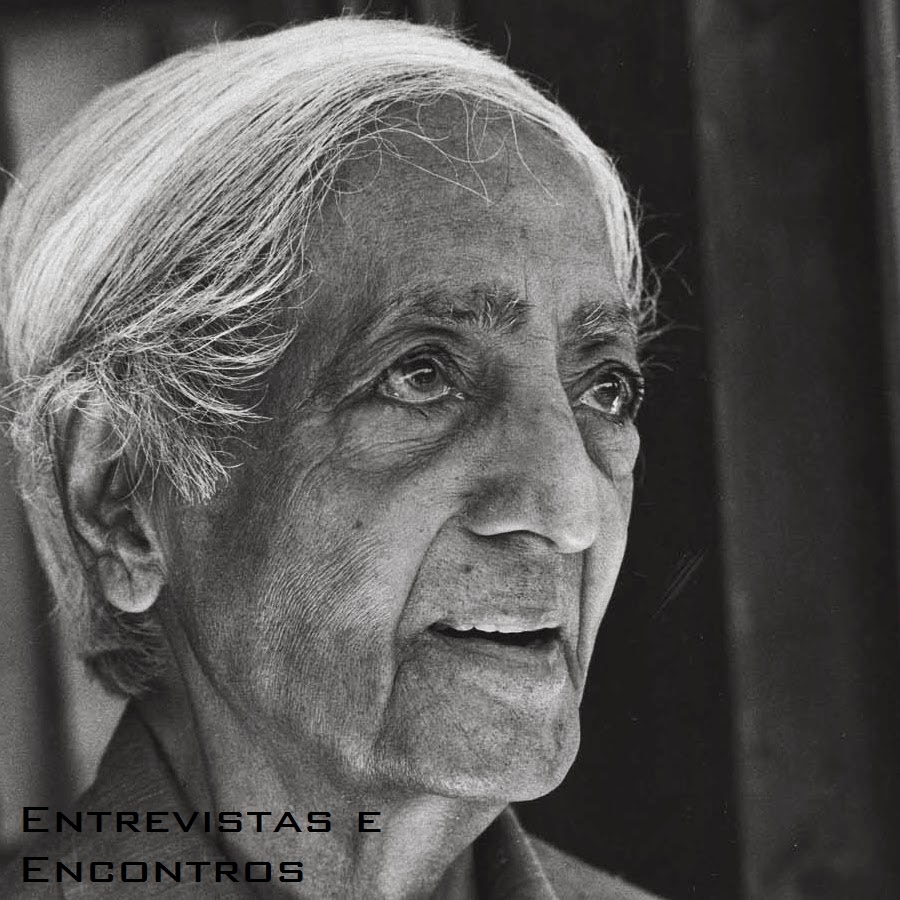
J. Krishnamurti ~ May 11, 1895 – February 17, 1986
De-condition the Mind
Our search for remission
From ills of the human condition
Will find its fruition
As we de-condition –
The mind.
Ron’s audio recitation of “De-condition the Mind”
Ron’s explanation of “De-condition the Mind”
Dear Friends,
The foregoing “De-condition the Mind” pithy poem was long ago inspired by renowned twentieth century philosopher J. Krishnamurti, whose independent spiritual philosophy helped me begin understanding what was happening to me soon after my spiritual awakening. To help you understand the poem, I have culled and posted the foregoing quotations, which include some of Krishnamurti’s core teachings.
Though born in India, Krishnamurti disclaimed allegiance to any nationality, caste, religion, guru or philosophy. He spent most of his life traveling and teaching worldwide.
Soon after a midlife spiritual awakening that I was pure awareness and not just my physical body and its story, I was given numerous glimpses of previously unknown clairvoyant and psychic phenomena which also persuaded me that the universe didn’t work the way I’d been taught or thought.
So I wondered about the true nature of this supposedly “real” world and the universe which we seem to inhabit. Krishnamurti had then become known to me as a contemporary sage. And to satisfy my newly aroused cosmic curiosities, I began reading Krishnamurti’s teachings.
Though initially I was puzzled by many of his enigmatic assertions about the human mind, I was determined to understand them. And gradually that seemed to happen.
In addition to Krishnamurti’s independent philosophic teachings, I began discovering similar wisdom teachings concerning Advaita Vedanta, the oldest extant school of Indian Philosophy. Advaita means non-dualism, and its teachings are about experiencing non-dual Self Realization via focused self-inquiry.
Ultimately I inferred from these philosophic teachings and from my spiritual awakening as Awareness, that everyone and everything else in space/time was like me the same pure Awareness mentally experiencing space/time through an impermanent energy form.
But, I also realized that our misperceptions and mental misconceptions of separateness have created an illusory world of suffering – an illusory mental mirage – with which we self-identify and reify. And that as long as we mistakenly perceive and believe ourselves to be separate from each other and nature, we suffer individually and societally from the universal law of cause and effect – karma.
From long lifetime experience, I have learned that as gradually we unselfishly open our hearts with compassion beyond personal desires and affections, our karmic sufferings diminish, and we reap increasing happiness.
Most postings on the SillySutras website, including “De-condition the Mind” are sincerely dedicated to helping all of us lead ever happier lives through increasing awareness of perennial spiritual wisdom.
Mystics say that ultimately, upon Self Realization of our true divine identity, our earthly sufferings end.
Today’s profound Krishnamurti quotations and De-condition the Mind poem can help remind us that since all our space/time “reality” arises from thought – that our mentality is our “reality” – we can vastly change our lives by observing and changing our thoughts, and by stilling and emptying our minds.
May these writings thereby help us live ever happier and soul fulfilling lives, as gradually we still our minds and open our hearts to remember that we are the unseen Source of the world we see.
And so may it be!
Ron Rattner
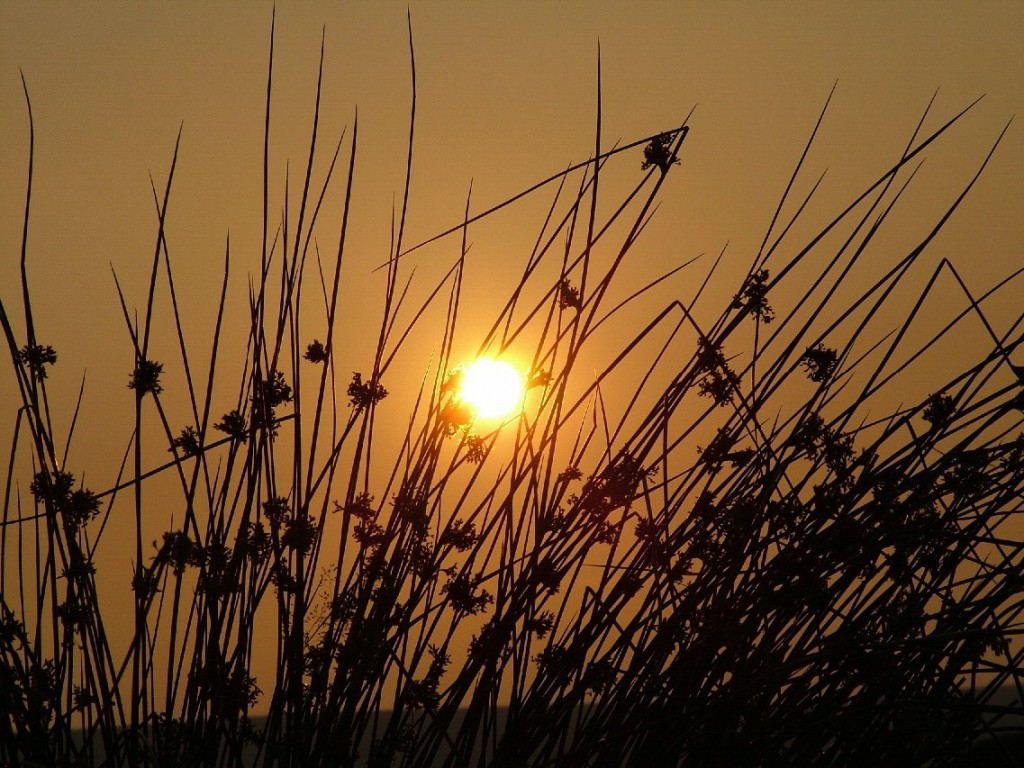
A Golden Compass ~ by Hafiz
“It is written on the gate of heaven:
Nothing in existence is more powerful than destiny.
And destiny brought you here, to this page,
which is part of your ticket – as all things are –
to return to God.”
~ Hafiz
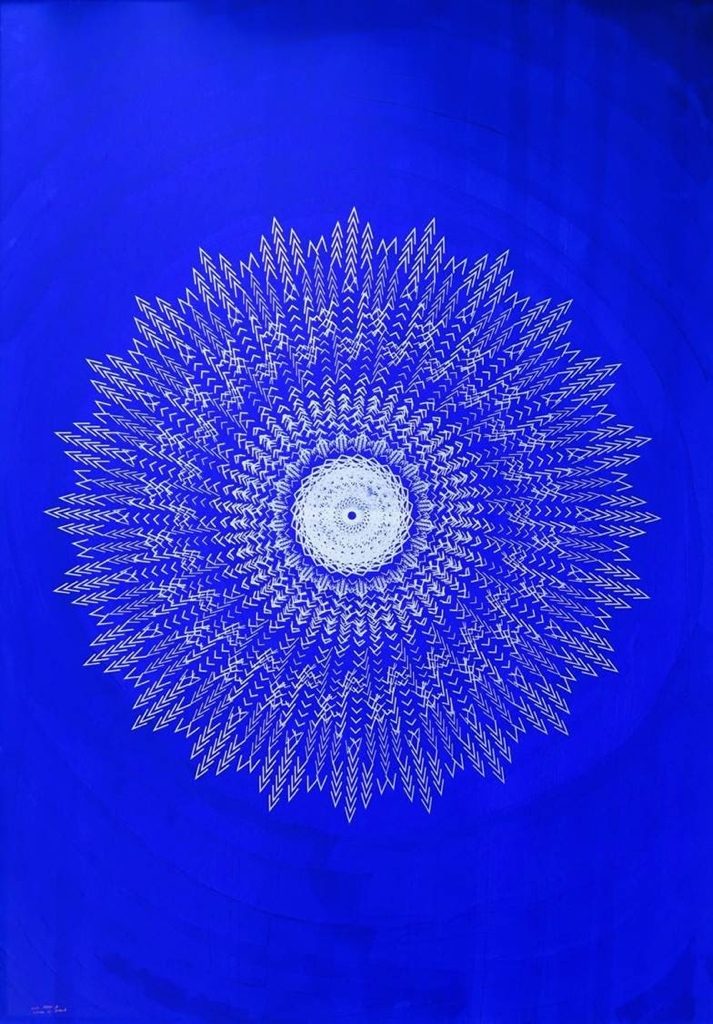
A Golden Compass
~ by Hafiz
Forget every idea of right and wrong any classroom ever taught you
Because an empty heart, a tormented mind, unkindness, jealousy and fear
Are always the testimony you have been completely fooled!
Turn your back on those who would imprison your wondrous spirit
With deceit and lies.
Come, join the honest company of the King’s beggars –
Those gamblers, scoundrels and divine clowns and those astonishing fair courtesans
Who need Divine Love every night.
Come, join the courageous who have no choice but to bet their entire world
That indeed, indeed, God is real.
I will lead you into the circle of the Beloved’s cunning thieves,
Those playful royal rogues, the ones you can trust for true guidance –
Who can aid you in this blessed calamity of life.
Hafiz, look at the Perfect One at the circle’s center:
He spins and whirls like a Golden Compass, beyond all that is rational,
To show this dear world that everything, everything in existence
Does point to God.
~ Hafiz
Translation from: I Heard God Laughing ~ by Daniel James Ladinsky
Video of “A Golden Compass”
Audio: La Illaha Illa Allah – Manish Vyas with voice of Ma Prem Sarasa
A Golden Compass ~ by Hafiz
Ron’s Comment on Poetry of Hafiz (1320-1389)
Though Hafiz lived 700 years ago, he remains the most beloved poet of Persia (Iran). Just as many Western people keep copies of the bible in their homes, many Persian and Iranian ancestry people keep copies of Hafiz’ writings which they consider the pinnacle of Persian wisdom.
To Persians, the poems of Hafiz are not “classical literature” from a remote past, but cherished perennial wisdom from a dear friend. Some consider Hafiz’ writings unique in world literature, with poetry that celebrates every expression of divine love.
Thus, Poet Jason Espada, says:
“The lyrics of Hafiz overflow with a profound appreciation of the beauty and richness of life when seen through the eyes of love. With unerring insight, he explores the feelings and motives associated with every level of love, tracing each nuance of emotion in depth and detail. His poetry outlines the
stages of the mystic’s “path of love” that journey of inner unfolding in which love dissolves personal boundaries and limitations to join larger processes of growth and transformation. Through these processes, human love becomes divine love and the lover merges ultimately with the source and goal of all love, which Hafiz calls the Divine Beloved.”
Because of the nuanced subtlety of Hafiz’ original sublime language, his words can be difficult to translate. But in this English translation, by mystically sensitive interpreter Daniel Ladinsky, Hafiz’ message of Divine Love is powerfully communicated.
Thus, I feel that “A Golden Compass” and the other Hafiz poems and sayings quoted on SillySutras.com are the amongst the most beautiful and deeply insightful postings on the entire website.
So enjoy “A Golden Compass” which communicates how everything in and beyond the perceptible Universe leads to and is God –as LOVE. And while reading the Hafiz verses I recommend that you listen to the above embedded audio of the powerfully sung Sufi remembrance of God prayer: La Illaha Illa Allah.
Thus may we remember that “beyond all that is rational”,
Everything is holy.
All is God,
And only God is “real”.
And so may it be!
Ron Rattner
Power Source
“If you put your soul against this oar with me,
the power that made the universe will enter your sinew
from a source not outside your limbs,
but from a holy realm that lives in us.”
~ Rumi – “That Lives in Us”
“You Have The Power: All the powers in the universe are already ours.
It is we who have put our hands before our eyes and cry that it is dark.”
~ Swami Vivekananda
“The power to think is a great gift;
but the power to not think is a greater gift.”
~ Ron Rattner, Sutra Sayings
“Knowing you don’t know is wholeness.
Thinking you know is a disease.
Only by recognizing that you have an illness
can you move to seek a cure.”
~ Lao Tzu
“Without stirring abroad, one can know the whole world;
Without looking out of the window one can see the way of heaven.
The further one goes the less one knows.”
~ Lao Tzu
“I tell you the truth, if you have faith as small as a mustard seed,
you can say to this mountain, “Move from here to there”
and it will move.”
~ Matthew 17:20
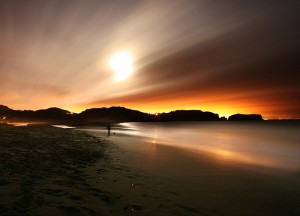
Power Source
It is said that “knowledge is power”.
However, transcendent power comes
not from mental knowledge, but from thoughtless Knowing;
And, until we really Know,
it is approached from unknowing –
What we think we know, but don’t.
We become ever more powerful as we
forsake our false beliefs,
And ever open to the vast Unknown –
To the Eternal Mystery –
To the Tao –
To the Universal Source of all Power.
Ron’s audio recitation of “Power Source”
Ron’s Comments on “Power Source”
Dear Friends,
This is an especially appropriate time for us to consider the foregoing timeless quotations and online essay about Power Source.
As above so below.
Did you know that on Earth there already exists potentially unlimited ‘free energy’ yet to be revealed and used for everyone everywhere?
Or, similarly, that beyond our perceived space/time “reality”, there exists within everyone everywhere a timeless and infinitely potential divine Power Source, awaiting our discovery?
Nonetheless, because of ignorantly insane Human ‘power seeking’ activities, we face possibly imminent ecological or nuclear disaster which could end Earth life as we have known it.
So this is an extremely appropriate age for all of us who cherish our precious planet to awaken from our “deep state sleep state”, and to fearlessly and mindfully access for everyone everywhere our divinely bequeathed limitless free energy “on Earth as it is in Heaven”.
And so may it be!
Ron Rattner
Universal Intelligence
~ by Tom Atlee
“The harmony of natural law…reveals an intelligence of such superiority that, compared with it, all the systematic thinking and acting of human beings is an utterly insignificant reflection.”
~ Albert Einstein, The World As I See It
“I believe in Spinoza’s God who reveals Himself in the orderly harmony of what exists, not in a God who concerns Himself with the fates and actions of human beings.”
~ Albert Einstein, Telegram of 1929
“Everyone who is seriously involved in the pursuit of science becomes convinced that a spirit is manifest in the laws of the Universe – a spirit vastly superior to that of man, and one in the face of which we with our modest powers must feel humble. In this way the pursuit of science leads to a religious feeling of a special sort, which is indeed quite different from the religiosity of someone more naive.”
~ Albert Einstein [As quoted in Dukas, Helen and Banesh Hoffman. (1979). Albert Einstein – The Human Side, Princeton University Press.]
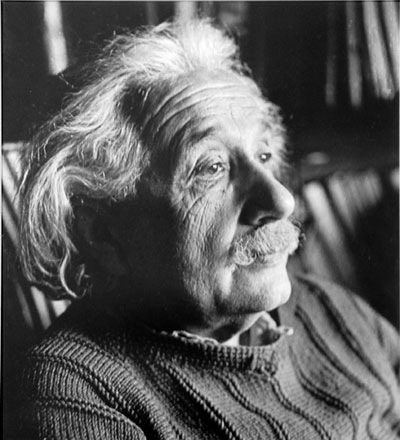
Albert Einstein
Ron’s Introduction
Albert Einstein was not only a great scientist but a wise philosopher and a pragmatic “true mystic” … “of a deeply religious nature.” (New York Times Obituary, April 19, 1955)
Einstein did not believe in a formal, dogmatic religion, but was religiously and reverently awed and humbled with a “cosmic religious feeling” by the immense beauty and eternal mystery of our Universe. He often commented publicly on religious and ethical subjects, and thereby he became widely respected for his moral integrity and mystical wisdom, as well as for his scientific genius.
In a collection of essays entitled The World As I See It, first published 1933, Einstein explained thusly his reverence for God as supreme Intelligence:
“The harmony of natural law…reveals an intelligence of such superiority that, compared with it, all the systematic thinking and acting of human beings is an utterly insignificant reflection.”
~ Albert Einstein, The World As I See It.
In December 2010, I discovered online and republished on SillySutras.com the excellent essay below about Universal Intelligence, believing it to be a verbatim extract from Albert Einstein’s “The World As I See It”, because it began with the above quote.
So I attributed the entire essay to Einstein. But I was mistaken.
Not until December 2016, did I discover that the essay was not written by Einstein, but by Tom Atlee of The Co-Intelligence Institute, a non-profit organization, which had published the Universal Intelligence essay commencing with the foregoing Einstein quotation at http://www.co-intelligence.org/Universal_Intelligence.html .
Since the essay is inspired by and harmoniously consistent with Einstein’s views, I am continuing to republish it with corrected attribution, and with sincere apologies to Tom Atlee and any prior visitors to the Silly Sutras website who may have been misled by my mistaken attribution.
Universal Intelligence
by Tom Atlee
“There is something about the universe — an elegant order in the way everything fits and unfolds, an inexplicable beauty in its living patterns, and the mysterious depth and expressiveness of it all — that reminds us of the brilliance we see in the works of great artists, scientists, engineers, and saints.
Some people believe that human intelligence is the pinnacle of natural evolution and can outdo anything nature has to offer — and that there is no God, and that nature has nothing remotely resembling consciousness or intelligence. Others say that nature’s (or God’s) brilliance is greater than any human intelligence — ultimately awesome in its scope and endlessly surprising in its details — and that human intelligence is a small but elegant expression of this larger intelligence and has much to learn from it.
More often than not, I find myself in this latter group — those who sense some kind(s) of universal intelligence. To some degree, this is a matter of faith. To some degree, it seems that the evidence surrounds us. For those of us who see things this way, I suspect it honors universal intelligence more if we contemplate it, share our sense of it, and tap into it rather than argue about it with others who see things differently. In any case, this article describes how I see it.
Christians see a higher intelligence they call God’s plan, or the will of God. Taoists see a higher intelligence they call the Tao, the Way of Nature. Meditative traditions speak of cosmic consciousness. Most indigenous peoples consider all of nature to be intelligent and alive. Scientists speak of natural laws — and some are now researching what they call complex, adaptive systems — systems that respond to the world around them, in ways that look a lot like learning. The whole process of evolution is clearly a learning process, a developing of new variations that work better, or work in new environments. Some people see evolution as the dynamic unfolding Great Story of the Living Universe and consciously celebrate and learn from it.
I bundle all these phenomena into one package and label it “universal intelligence.”
When I’m feeling esoteric, I might describe it something like this:
We live in a sea of information, a web of interconnection, a field of what some Buddhists call inter-being — a dynamic state of interactive, resonant existential communion. There are universal patterns, powers and wisdom at the core of our being, and the universe vibrates with our every act and thought. What happens in one place and time is linked to everything else far more intimately than we could ever imagine. Synchronicities and analogs abound. Certain patterns keep cropping up: We see BRANCHES in trees, rivers, roads, fields of study, computer circuitry. We see CYCLES in planets, electrons, food chains, wheels, the flows of water and carbon through the biosphere, and the recycling bin. It is no accident that we use the word VISION to describe perception, imagination, insight and prediction. Patterns like these (branches, cycles, vision, etc.) are alive with useful meaning. At every level, the universe is rich with lessons and resonances as it in-forms itself, intimately co-being and co-evolving, learning and remembering. Intelligence is everywhere. There is information and wisdom here we can tap into. There are flows and textures and energies, resistences and assistances, that we can join and follow, or grow stronger and wiser wrestling with.
Among those who see such intelligence operating in the world around us, there is endless speculation about its nature. Is universal intelligence built into nature by a human-like Creator and then left to unfold — or a sign of a Creator’s continual, contemporary engagement in creation? Are the natural patterns that we think of as intelligent merely analogs of our own intelligence, or are they somehow the same thing, writ large? Are we anthropomorphically projecting our experience of consciousness into the dumb matter of the world, or is our own intelligent consciousness somehow an expression or facet of some larger intelligent consciousness? Are we dreaming God, or is God dreaming us? I, myself, entertain several seemingly contradictory beliefs at once about all this, and keep it all balanced with a generous ballast of “maybes.”
For my purposes here, though, we don’t have to agree on the nature of universal intelligence. Despite all the disagreements about that, few will disagree that there is something ultimately mysterious and creative about the order of the universe. Even top scientists who see nothing “spiritual” in the world around them agree on that. At the very least, the word “intelligence” provides an excellent metaphor to describe that reality. So for now let us not argue over the exact nature of this thing I call universal intelligence. Rather, let us explore our relationship to it.
In the explorations that follow, I simply assume that there is an order that is larger than us, which has its own logic and direction which we are not in charge of. If this is true, then working against this higher power will demand more effort than working with it, and will generate little, if anything, of lasting value except learning — which is always available — and sometimes catastrophe. This would suggest that we subjugate ourselves to this higher intelligence. However, experience suggests that we can, to a certain degree and with great caution, manipulate this higher intelligence for our own ends — which we do through science and engineering by applying natural laws and through religion by praying. But natural order is complex beyond our capacity to know fully, and if our manipulations are at all arrogant — presumptuous that we know what we’re doing — we will likely end up creating a mess like the Sorcerer’s Apprentice. A third — and, to me, more satisfactory — strategy than total submission or manipulation is to respect, befriend, cooperate with and creatively move in harmony with this infinitely powerful and complex intelligence, to the best of our ability.
Humility is, naturally, an excellent place to begin in our efforts to cooperate with universal intelligence. Humility in this case simply means an honest appreciation of our own limitations and a real respect for the ancient and awesome wisdom of the greater intelligence(s) in which we’re embedded. Humility means starting from a place without arrogance, with flexible certainties, a place of respect, curiosity, wonder and willingness to learn — in every situation we can manage it.
“Letting go” is another part of cooperating with universal intelligence — being unattached to outcome, realizing we’re not in control. Not being in control doesn’t mean that we don’t have a significant role. Indeed, our influence is part of what shapes the unfolding of whatever happens next. But that is influence, and not control — sometimes more, sometimes less, and always participatory, not unilateral. (This also means leaving behind blame and shame and reconceptualizing responsibility as our [or another’s] actual role in events in which all of us have roles. Taking responsibility for the past would mean consciously acknowledging that what we did — whatever we did — played a role in what happened. Taking responsibility for the future would mean consciously choosing a role and playing it out as best we can, knowing that we are only one of many players.)
In what I experience as my best times, I feel more like a conduit for a larger, all-inclusive intelligence, or like my life is an active part of something larger that is trying to happen. When I’m in that state of awareness, there is a sense of being guided. It isn’t so much that I’m told what to do in so many words (although that has happened occasionally, too), but rather that I can feel when I’m “on track” or “off track.” It is a gut feeling that what I’m doing is the right thing (or not) at this time. Often it is more than a feeling of “being in the flow,” but an apparently objective fact. Ideas, resources, opportunities, and other openings inexplicably appear in ways that facilitate rapid progress in a particular direction — as if someone or something were clearing the way for me.
But sometimes “the way opens” (as the Quakers say) in directions that seem to me wrong. So I end up having to make judgments and choices anyway. How do I know that this impulse is aligned to universal intelligence while that other one is not? I’m not even sure we can talk about universal intelligence as something we can “know.”
So I certainly don’t believe that any of us can legitimately claim to know what its marching orders are, even if we wanted to follow its dictates. I see our challenge as more complex. In the spirit of co-intelligence — as noted above — I prefer to view what seem to be the patterns and promptings of universal intelligence not as something to submit to or manipulate, but as something to join in partnership with, in a sort of dance, as one would with a good friend or lover or comrade. We influence each other. My intentions have a role in shaping The Plan, and my actions have a role in realizing The Plan, but I never know exactly what The Plan is, although I often think I sense its patterns in my life and in the life of the world around me. I open myself to universal intelligence, and let my inevitably limited perception of it inform — but not control — my reason, my passion, my intuition, my action.
One part of that Plan — that intelligence — is crystal clear: Universal intelligence is definitely concerned with more than me. It is concerned with the operation and well-being of the Whole — a Whole so large I can’t fathom it. So opening myself to universal intelligence automatically influences me to keep my intentions for myself in perspective. And from that perspective, I know that when I try to benefit myself at the expense of someone or something else, it’s not going to work out as neatly as I think, because the Plan simply doesn’t operate that way. On the other hand, the closer I get to benefiting The Whole, the more aligned I become with the operations of universal intelligence.
And, since I can’t know The Whole, that translates into doing the best I can while giving universal intelligence lots of space to do what it does. In fact, I can become an ally with universal intelligence by providing contexts in which things can co-creatively self-organize, rather than forcing them into pre-determined outcomes. That doesn’t mean just standing back (although that’s often what’s called for); it means going with the grain of life, not against it. This can be quite active, like helping children learn what they really want to learn instead of forcing them to learn what they’re not interested in (or neglecting them) — or creating an open space conference where all the issues hidden inside the participants can emerge and get dealt with, rather than organizing a conference where experts tell people what to think. This is working with universal intelligence, giving universal intelligence the space it needs to do its thing through whatever aliveness is present.”
Source
http://www.co-intelligence.org/Universal_Intelligence.html
Indian Spirituality Principles*
“On a long journey of human life,
faith is the best of companions;
it is the best refreshment on the journey;
and it is the greatest property.”
~ Buddha
“Faith is the highest passion in a human being.
Many in every generation may not come that far,
but none comes further.”
~ Soren Kierkegaard
“I tell you the truth,
if you have faith as small as a mustard seed,
you can say to this mountain,
“Move from here to there” and it will move.”
~ Matthew 17:20
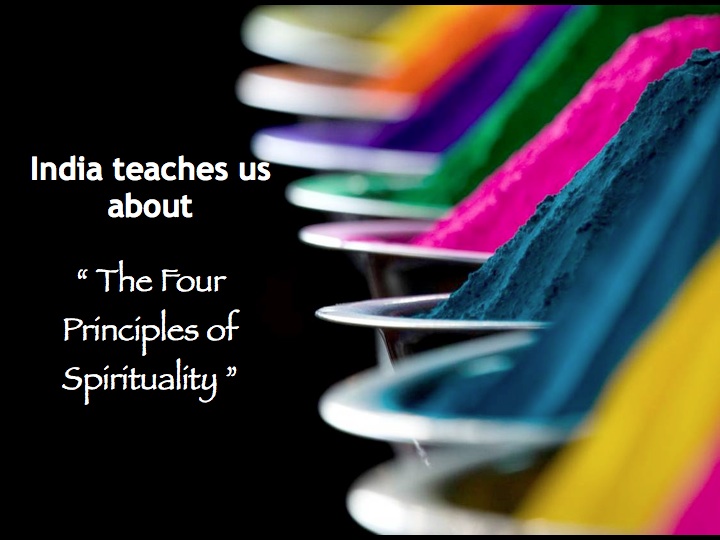
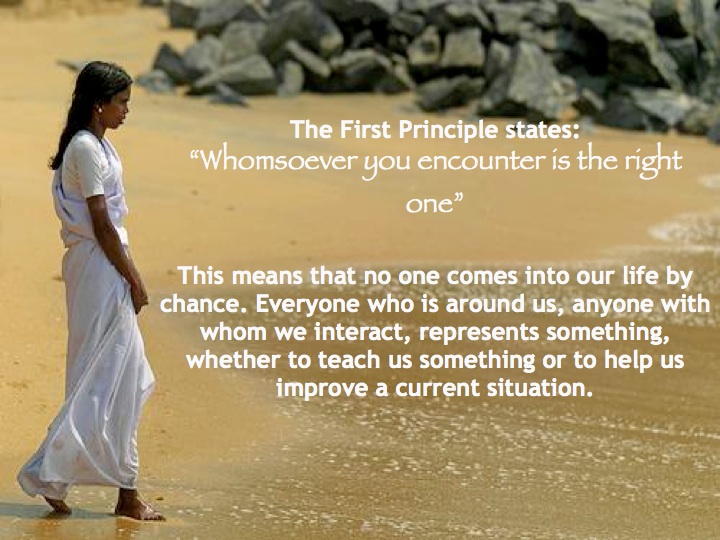
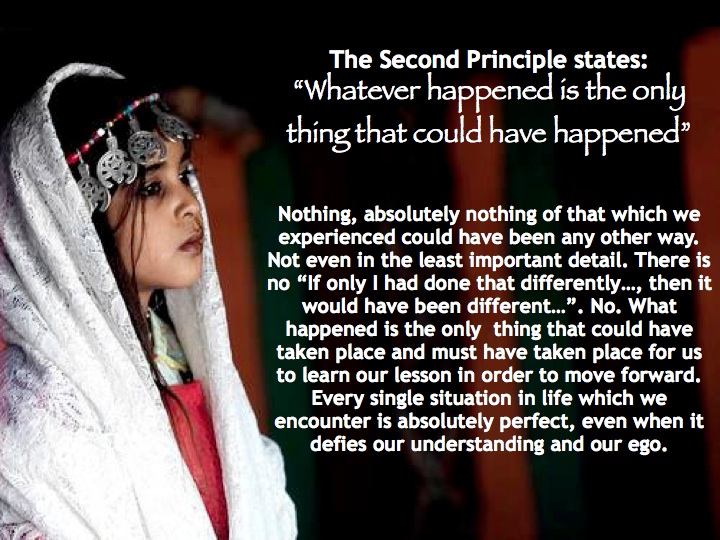
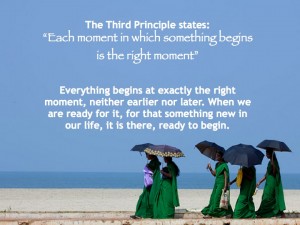
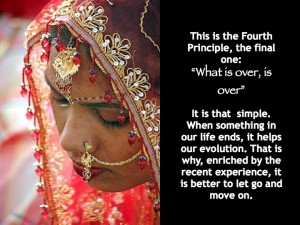
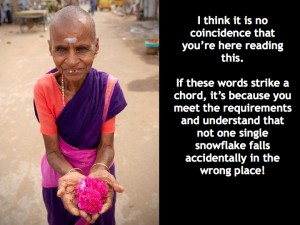
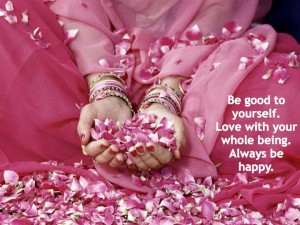
Ron’s hints for happiness:
Even if it’s difficult for you to believe these spiritual principles, your life will be happier if you live as if they were true, with faith and love. Whether or not you believe in spiritual evolution or predestiny, just pretend that everything in your life is happening for the best, in the best way and at the best time. And accept difficulties as evolutionary opportunities, without remorse or regret about the past or worry or fear of the future. Sow love, harvest happiness.
Downloadable pdf file: IndianSpirituality
* Source and author are unknown
Ron’s Optimism Commentary:
Dear Friends,
Today I share the above simply written but possibly profound article – by an anonymous author – titled “Indian Spirituality Principles”, preceded by quotes about faith. Please reflect on their message.
The article says that there are no coincidences or accidents in our lives; that everyone we encounter and everything that happens or doesn’t happen to us, can help us learn to live happier lives.
From long life experience, I have gratefully and joyfully discovered that our earth life in precious human bodies is a rare and immense evolutionary opportunity for us to advance – individually and societally – toward realization of unlimited human and spiritual potentialities.
With boundless and abiding faith that our lives are completely enveloped, controlled and guided by Divine LOVE, beyond human comprehension, imagination or description, I have realized that we are Eternal spirit incarnate with nothing to fear but fear itself. [ see e.g. I’ve Found A Faith-Based Life ]
Though it may be difficult for us to accept principles of spiritual evolution or pre-destiny, I respectfully suggest our lives will be happier if we live as if they are true.
So with faith and love let us assume that everything in our lives is happening for the best, in the best way and at the best time; so that – like philosopher Gottfried Leibniz (and unlike Voltaire and “Candide”) – we may accept difficulties as evolutionary opportunities, without remorse or regret about the past, or worry or fear of the future.
Thereby we will optimistically sow love, and inevitably harvest happiness in ‘the best of all possible worlds’.
And so it may it be!
Ron Rattner
Choosing Happiness: No Arms No Legs No Worries
“The greatest discovery of any generation
is that human beings can alter their lives
by altering the attitudes of their minds.”
~ Albert Schweitzer
“Though we may not be free to choose our outer circumstances in life,
we are always free to choose our attitude and thoughts about those circumstances.”
~ Ron Rattner, Sutra Sayings
It’s not our longitude
Or our latitude,
But the elevation of our attitude,
That brings beatitude.
***
So an attitude of gratitude
Brings beatitude.
~ Ron Rattner, Sutra Sayings
“Gratitude is not only the greatest of virtues,
but the parent of all others.”
~ Cicero
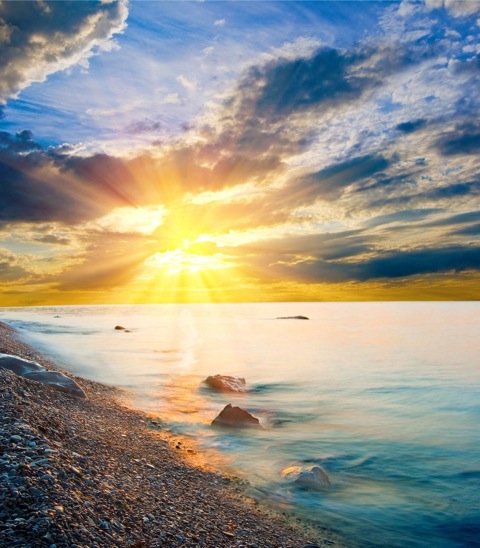
Nick Vujicic is an inspiring Australian motivational speaker and Christian evangelist who was born without arms or legs. As a child, he struggled mentally and emotionally as well as physically. But eventually, with perseverance and faith in God, Nick discovered that his state of mind determined his happiness, and that we choose our state of mind.
Thereby he learned to gratefully accept his life just as it is.
He teaches his crucial insights not only with his words but mostly by his life example. Though he can’t walk physically, he metaphorically walks his talk.
Here is a powerfully inspiring four minute video in which Nick both articulates and demonstrates his fundamental teaching – that an attitude of accepting our life with faith and gratitude brings happiness.
https://www.youtube.com/watch?v=SjbX6mDnMwM
Nick Vujicik ~ No Arms No Legs No Worries



